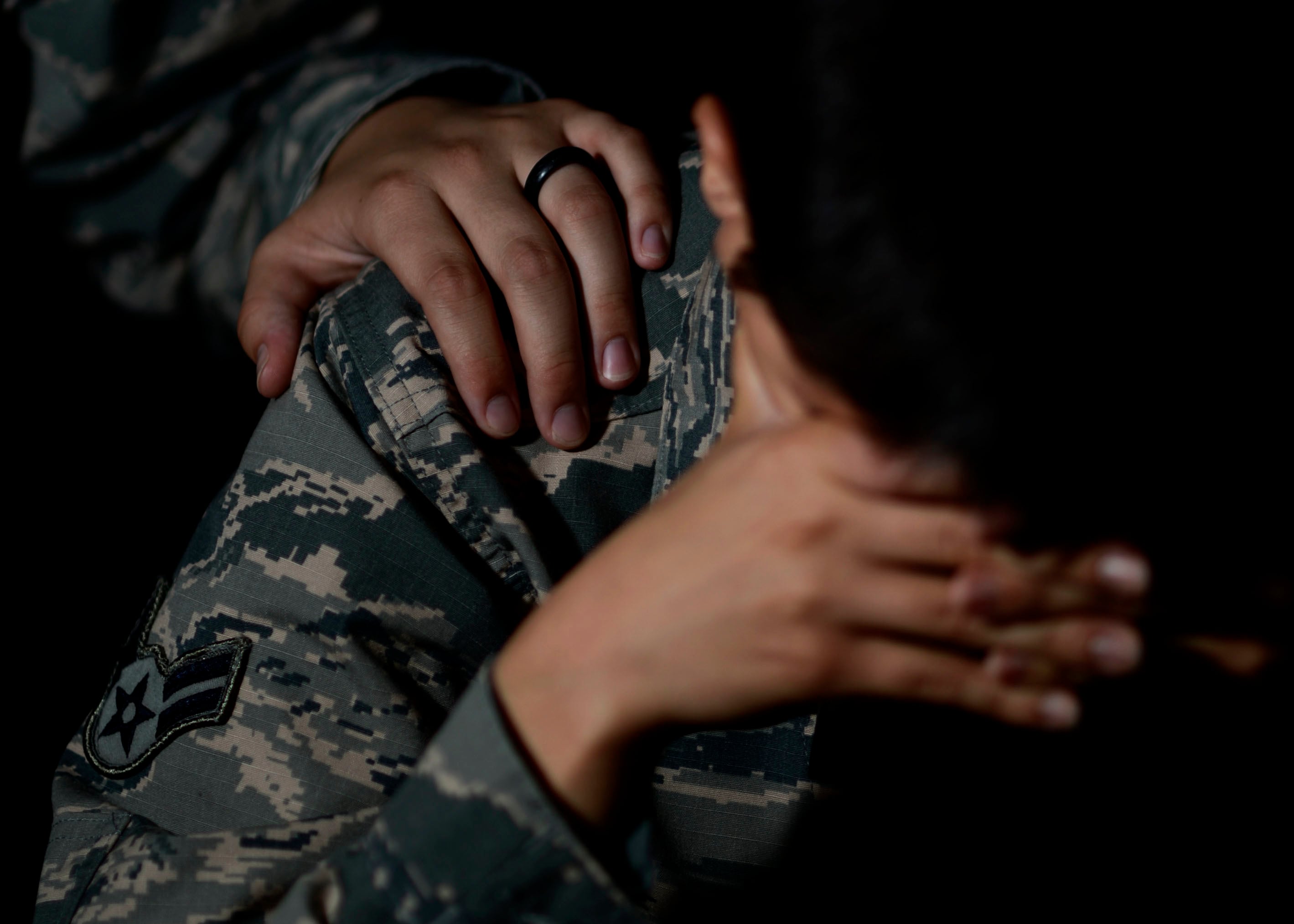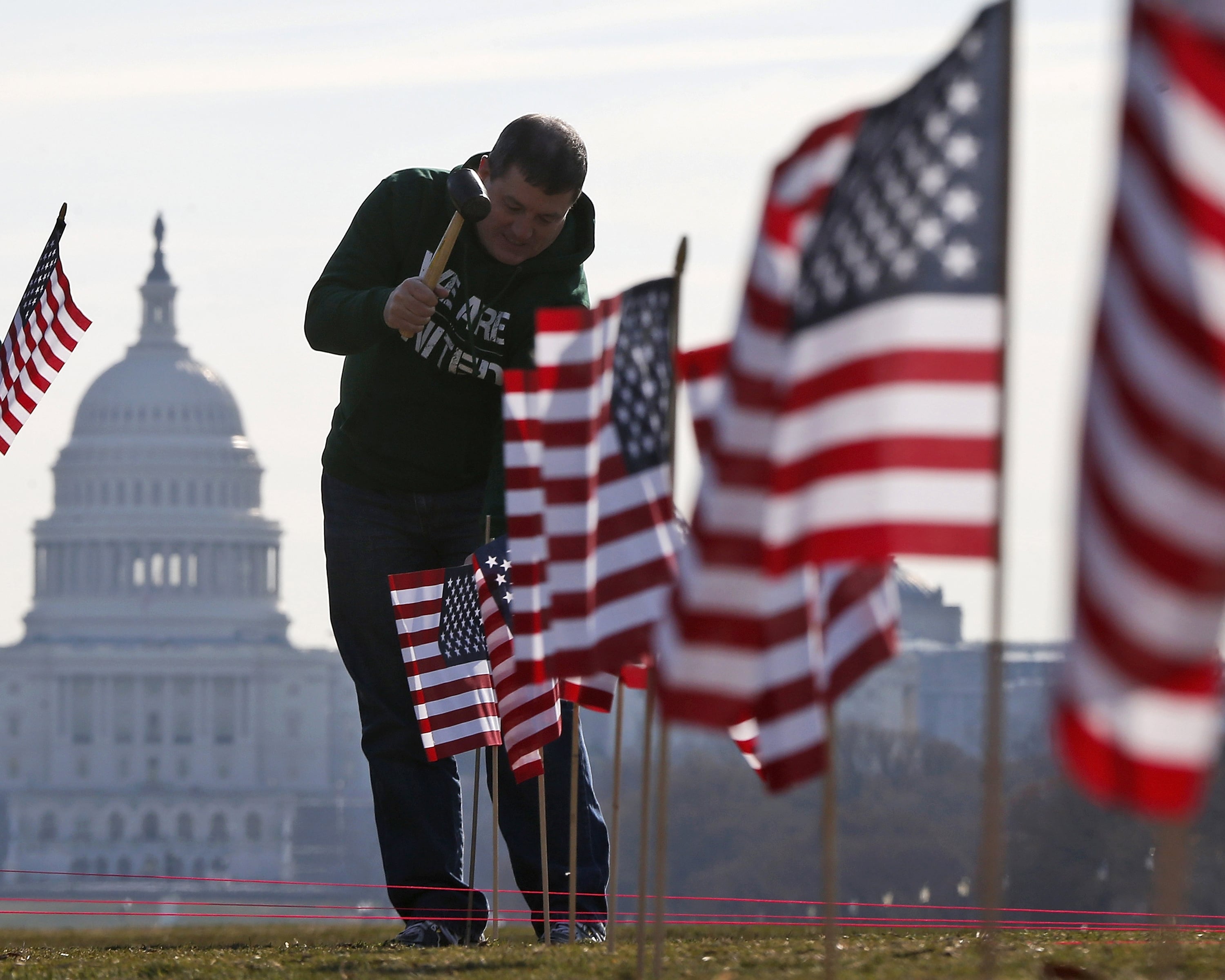President Donald Trump on Saturday signed into law a pair of bills designed to help prevent veterans suicide, including a measure to establish a new three-digit national crisis line similar to 911 for mental health emergencies.
Both measures had received significant support from veterans groups in recent months, and passed through Congress without significant objection. In a statement Saturday night, VA Secretary Robert Wilkie praised the moves as key improvements in efforts to better reach veterans in times of emotional or mental instability.
“People in distress and in need of timely care should face the fewest obstacles possible to get help,” he said. “The bill President Trump signed today will soon make it easier for those at risk to be quickly connected to a trained responder and will help save lives.”
RELATED

The new suicide crisis hotline measure will designate 988 as a universal telephone number for national suicide prevention and mental health crisis hotline services. Although the call center will not be exclusive to veterans, advocates have championed the idea in recent years as a way to make emergency mental health care more available to veterans.
About 20 veterans and service members die by suicide each day, according to the latest statistics from the Department of Veterans Affairs. That figure has remained at about the same level over the last decade despite focused efforts by the department and Congress on outreach and new intervention services.
Under the provisions of the bill, the new 988 crisis number will be active by fall 2021. Both the VA secretary and assistant secretary for mental health and substance use at Health and Human Services will issue a report to Congress next April on progress with that work and additional resources that may be needed.
The other measure — the Commander John Scott Hannon Veterans Mental Health Care Improvement Act — includes a new grant program to encourage collaboration with community organizations on suicide prevention, new hiring rules to quickly fill mental health staffing gaps at the Department of Veterans Affairs, and a host of new data requirements to better track potential causes of suicide.
The bill was sponsored by Senate Veterans Affairs Committee Chairman Jerry Moran, R-Kan., and ranking member Jon Tester, D-Mont.
“This new law combines the best ideas from veterans, veterans service organizations, the VA, and mental health care advocates to deliver innovative solutions that’ll help heal invisible wounds of war through increased access to care, alternate therapies and local treatment options,” Tester said in a statement.
The legislation had faced some opposition in the House because of concerns about the community grants going to groups that do not have an established record of clinical success in mental health treatment.
But Wilkie and a number of veterans groups strongly lobbied for the measure in recent months, saying that new approaches are needed to help stem the number of veteran suicides.
RELATED

“The innovative approaches they take in the Hannon Act are what is needed at this point in the veteran suicide crisis,” Jeremy Butler, CEO of Iraq and Afghanistan Veterans of America, said in a statement. “We look forward to working with Congress and the administration to ensure that this groundbreaking legislation is fully implemented.”
More suicide prevention measures still could be signed into law this year. As part of an agreement to advance the Hannon Act through the House, Senate lawmakers also agreed before the end of the year to try and fast-track a package of nine House bills also related to the issue of veterans suicide.
That package — dubbed the COMPACT Act — features a measure by House Veterans' Affairs Committee Chairman Mark Takano, D-Calif., to make VA mental health care services to all veterans, regardless of their discharge status.
It also includes several provisions related to training and assistance for veterans family members (designed to create stronger support networks for at-risk veterans), a new mandate that VA officials reach out to veterans every few years to ensure they are aware of benefits and health care options, and new training for VA police.
Leo covers Congress, Veterans Affairs and the White House for Military Times. He has covered Washington, D.C. since 2004, focusing on military personnel and veterans policies. His work has earned numerous honors, including a 2009 Polk award, a 2010 National Headliner Award, the IAVA Leadership in Journalism award and the VFW News Media award.





